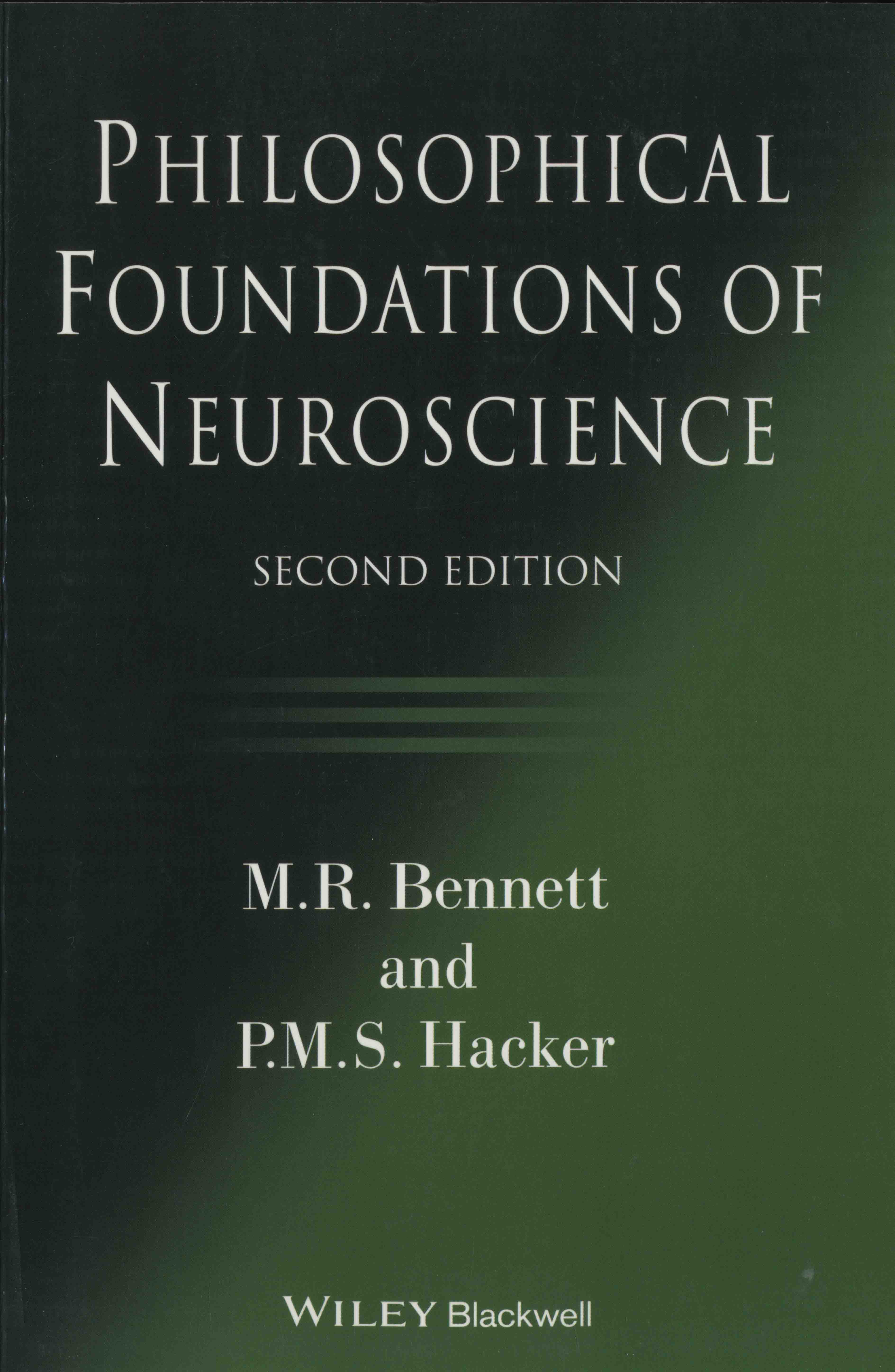 |
Philosophical foundations of neuroscience / M.R. Bennett and P.M.S. Hacker -- Second Edition -- Hoboken, NJ : John Wiley & Sons Ltd., 2022. – (59.59031/B472/2nd ed.) |
Contents
Foreword to the Second Edition by Denis Noble
Foreword to the First Edition by Denis Noble
Acknowledgements to the Second Edition
Acknowledgements to the First Edition
Introduction to the First Edition
Introduction to the Second Edition
Part I Philosophical Problems in Neuroscience: Their Historical and Conceptual Roots
Preliminaries to Part I
1 Philosophical Problems in Neuroscience: Their Historical Roots
2 Philosophical Problems in Neuroscience: Their Conceptual Roots
1 The Growth of Neuroscientific Knowledge: The Integrative Action of the Nervous System
1.1 Aristotle, Galen and Nemesius: The Origins of the Ventricular Doctrine
1.2 Fernel and Descartes: The Demise of the Ventricular Doctrine
1.3 The Cortical Doctrine of Willis and Its Aftermath
1.4 The Concept of a Reflex: Bell, Magendie and Marshall Hall
1.5 Localizing Function in the Cortex: Broca, Fritsch and Hitzig
1.6 The Integrative Action of the Nervous System: Sherrington
2 The Cortex and the Mind in the Work of Sherrington and His Proteges
2.1 Charles Sherrington: The Continuing Cartesian Impact
2.2 Edgar Adrian: Hesitant Cartesianism
2.3 John Eccles and the 'Liaison Brain'
2.4 Wilder Penfield and the 'Highest Brain Mechanism'
3 The Mereological Fallacy in Neuroscience
3.1 Mereological Confusions in Cognitive Neuroscience
3.2 Challenging the Consensus: The Brain Is Not the Subject of Psychological Attributes
3.3 Qualms Concerning Ascription of a Mereological Fallacy to Neuroscience
3.4 Replies to Objections
4 An Overview of the Conceptual Field of Cognitive Neuroscience: Evidence, the Inner, Introspection, Privileged Access, Privacy and Subjectivity
4.1 On the Grounds for Ascribing Psychological Predicates to a Being
4.2 On the Grounds for Misascribing Psychological Predicates to an Inner Entity
4.3 The Inner
4.4 Introspection
4.5 Privileged Access: Direct and Indirect
4.6 Privacy or Subjectivity
4.7 The Meaning of Psychological Predicates: How They Are Explained and Learned
4.8 Of the Mind and Its Nature
Part II Human Faculties and Contemporary Neuroscience: An Analysis
Preliminaries to Part II
1 Brain-Body Dualism
2 The Project
3 The Category of the Psychological
5 Sensation and Perception
5.1 Sensation
5.2 Perception
6 The Cognitive Powers
6.1 Knowledge and Its Kinship with Ability
6.2 Memory
7 The Cogitative Powers
7.1 Belief
7.2 Thinking
7.3 Imagination and Mental Images
8 Emotion
8.1 Affections
8.2 The Emotions: A Preliminary Analytical Survey
9 Volition and Voluntary Movement
9.1 Volition
9.2 Libet's Theory of Voluntary Movement and Its Progeny
9.3 Refutations and Clarifications
9.4 Conflict-Monitoring and the Executive
9.5 Man and Machine: Doing Something Like an Automaton, Automatically, Mechanically, from Force of Habit
9.6 Taking Stock
Part Ill Consciousness and Contemporary Neuroscience: An Analysis
10 Intransitive and Transitive Consciousness
10.1 Consciousness and the Brain
10.2 Intransitive Consciousness and Awareness
10.3 Transitive Consciousness and Its Forms
11 Conscious Experience, Mental States and Qualia, Neural Correlates of Consciousness
11.1 Extending the Concept of Consciousness
11.2 Conscious Experience and Conscious Mental States
11.3 Qualia
12 Neural Correlates of Consciousness, Integrated Information Theory, Global Workspace Theory
12.1 The Integrated Information Theory of Tononi
12.2 Global Workspace Theory
12.3 On Finding One's Way through a Conceptual Jungle with Worthless Tools
12.4 What Is Necessary for Neural Correlation
12.5 Where to Find the Explanations
13 Puzzles about Consciousness
13.1 A Budget of Puzzles
13.2 On Reconciling Consciousness or Subjectivity with Our Conception of an Objective Reality
13.3 On the Question of How Physical Processes Can Give Rise to Conscious Experience
13.4 Of the Evolutionary Value of Consciousness
13.5 The Problem of Awareness
13.6 Other Minds and Other Animals
14 Self-Consciousness and Selves, Thought and Language
14.1 Self-Consciousness and the Self
14.2 Historical Stage Setting: Descartes, Locke, Hume and James
14.3 Current Scientific and Neuroscientific Reflections on the Nature of Self-Consciousness
14.4 The Illusion of a 'Self'
14.5 The Horizon of Thought, Will and Affection
14.6 Self-Consciousness
15 Concepts, Thinking and Speaking
15.1 Concepts and Concept Possession
15.2 Concept Possession as Mastery of the Use of an Expression
15.3 What Do We Think In?
Part IV On Method
16 Reductionism
16.1 Ontological and Explanatory Reductionism
16.2 Reduction by Elimination
17 Methodological Reflections
17.1 Linguistic Inertia and Conceptual Innovation
17.2 The 'Poverty of English' Argument
17.3 From Nonsense to Sense: The Proper Description of the Results of Commissurotomy
17.4 Philosophy and Neuroscience
17.5 Why It Matters
Appendices
Appendix 1 Daniel Dennett
1 Dennett's Methodology and Presuppositions
2 The Intentional Stance
3 Heterophenomenological Method
4 Consciousness
Appendix 2 John Searle
1 Philosophy and Science
2 Searle's Philosophy of Mind
3 Unified Field Theory
4 The Traditional Mind-Body Problem
Appendix 3 Further Replies to Critics
1 The Mereological Principle
2 Essentialism
3 A Priorism: Empirical Learning Theory or the Nature of Primitive Language-Games
4 Criteria and Constitutive Evidence
5 Foundationalism, Linguistic Conservatism, Conceptual Change, Connective Analysis, Tolerating Inconsistencies and Post-Modernism
Afterword to the Second Edition by Anthony Kenny
Index